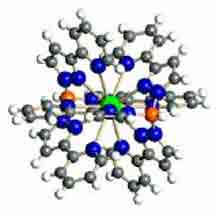 On November 23, 2007 Iran stated Western nations’ efforts to impose seeking harsher U.N. sanctions against it could halt its steps to clarify nuclear activity to U.N. inspectors.
On November 23, 2007 Iran stated Western nations’ efforts to impose seeking harsher U.N. sanctions against it could halt its steps to clarify nuclear activity to U.N. inspectors.
Earlier in the week, U.N. nuclear watchdog stated that believed that Iran was making good progress towards resolving key objectives by the end of the year, only to be told not enough had been done to secure the trust of the West.
The Western accusation against Iran it is secretly trying to build atomic bombs. Iran's clarifications on centrifuge research were consistent with International Atomic Energy Agency (IAEA) intelligence.
Iran also continued to defy demands by the United Nations Security Council to suspend enrichment work.
The so-called "EU-3 Powers" of Britain, France and Germany told IAEA governors that further delays were not acceptable.
They and the United States said Iran had failed to show full disclosure and suspend enrichment gain a reprieve from further sanctions. Russia and China did not join the Western camp in supporting further Security Council action. Russia, moreover, has referred to Iran’s cooperation so far as having been constructive.
The two key issues involve traces of highly enriched -- or bomb-grade -- uranium that inspectors found at research sites, and intelligence on links between uranium processing, explosives tests, and an apparent design for a missile warhead.
Friday, November 23, 2007
Russia and China -v- US and EU Over Iranian Nuclear Program
Posted by
Galina Ivanova
at
4:29 PM
![]()
Labels: china, european union, france, germany, great britain, iaea, iran, nuclear power, nuclear weapons, russia, sanctions, united nations, united states
Subscribe to:
Post Comments (Atom)
No comments:
Post a Comment